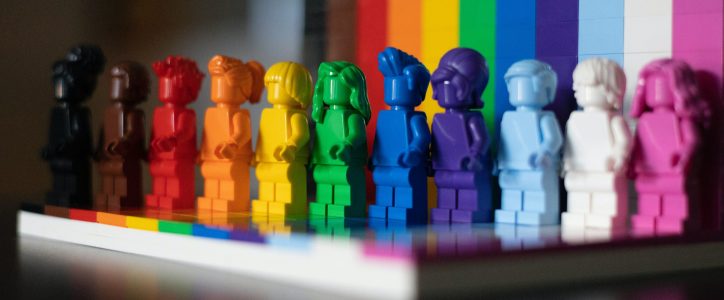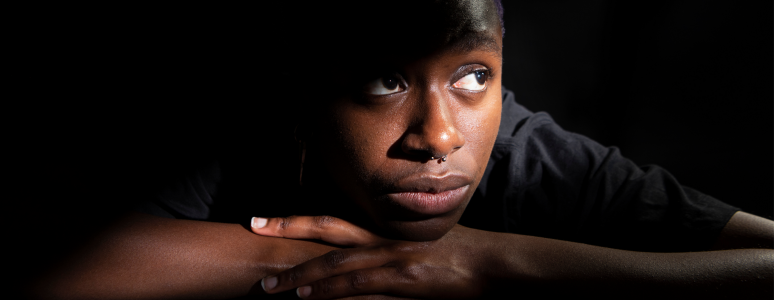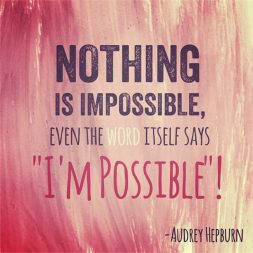What is Counselling and Psychotherapy?
Affirmative, Intersectional Psychotherapy and Counselling
I provide counselling and psychotherapy in Holloway, Hackney, and supervision online
I have nearly 40 years’ experience of working with individuals from racialised, LGBTQIA+ and working-class communities. I also work with young people and adults facing a variety of challenges.
I provide an affirmative, anti-oppressive framework that acknowledges the importance of past experience and allows clients to develop a stronger understanding of themselves. Many individuals become traumatised by the discrimination and abuse experienced in their lives, and these traumas play an active role in their present-day mental health.
My sessions, available either in-person or over Zoom, offer you a safe, non-judgemental space where you will not be pathologised and instead have the chance to explore and accept who you are, giving the opportunity to explore what personal empowerment and growth means for you. I use an integrative approach, combining different therapeutic theories in accordance with what best suits each individual client.
Keep reading to learn more about my style of counselling and psychotherapy in Holloway, Hackney, and online.
My Approach

Accounting for the Role of Intersectional Trauma
In many cases, counselling and psychotherapy fails to account for the role discrimination and trauma plays in an individual’s life and the many different ways it might impact a person’s mental health. I take extreme care to employ an anti-oppressive, intersectional framework in the work I do with clients. As part of working with me we might explore the role discrimination plays in your life, as opposed to pathologising your experience. Instead of skirting around the subject, we place childhood and present-day discrimination at the heart of our work together so that we understand the way it has impacted you.

Understanding What It Means
Being marginalised has a profound effect on the psyche and how you perceive yourself. My affirmative approach seeks to help you understand that nobody is the same, and that your unique experience of discrimination contributes to your unique way of seeing the world. This way of seeing the world may be a shared experience amongst communities that you are part of, or it may not be. Together, we will work to understand the impact of structural, systemic and interpersonal discrimination on your social location, and your experiences as a result of the specific role trauma may have played in your life. Doing this helps you identify the barriers in your life and helps develop an increased awareness of how past trauma informs the way you think, behave and react in the present moment.

Offering Tools for Self-Empowerment
Having understood any trauma you carry and its impact on you, our work might also focus on helping you live well despite the trauma you have experienced. We can work together to bring understanding as to how you might overcome the challenges that have led you to come into therapy or counselling. We can explore what a healthier approach to your life might mean for you. I am not here to impose changes or give instructions; my role is to provide a good-enough safe space for you to explore self-actualisation – whatever that means to you. By creating a safe, affirmative, empathetic space, I walk beside you, and offer what you need, as you process and move past the trauma of your past and empower yourself to live a fuller, happier life going forward.
Specialist Areas

LGBTQIA+ Identity
As an Advanced Accredited Gender, Sex and Relationship Diversities Therapist, I have for many years worked closely with and within the LGBTQIA+ communities. I have been a counsellor and trainer focusing on issues such as intersectionality, sexuality, and gender identity, providing personalised support to individuals affected by homophobia, anti-lesbianism, bi-phobia, and transphobia, as well as educating therapists and counsellors who want to learn how to work affirmatively and well with our communities.
My approach is both affirmative and proactive, placing strong emphasis on creating an open, empathetic, anti-oppressive environment for adults and young people to explore their LGBTQIA+ identity/identities. Whether you are simply looking for a place to gain insight into new and complicated feelings or need specific support for trauma following years of discrimination from family/colleagues/wider society, I can work with you to identify and provide the personalised therapeutic approach that you need. As such we work in a collaborative partnership towards your wellbeing. I do not and never will offer any form of conversion therapy, and I fully support the Memorandum of Understanding on Conversion Therapy – which opposes gender and sexuality change efforts as unethical.

Racialised Trauma
Living as a member of a racialised minority community in the UK, is not easy. Often the experience of ‘otherness’ and marginalisation serve feel like an inevitable part of our daily lives. Many professionals fail to acknowledge that racialised discrimination – of both a conscious and unconscious kind – inherent in the society we live in leads to a particular kind of trauma that impacts how an individual behaves and feels about themselves and others. Sometimes racialised trauma can impact our ability to think, feel, breathe, be in the world, in a loving way towards ourselves, as internalised oppression can work against us feeling whole, or safe, or peaceful in the world we live in. This can sometimes lead to those of us who are impacted by discrimination self-medicating or numbing our pain. Sometimes issues such as addiction, depression, and anxiety can directly manifest themselves in our lives as a direct response to racialised trauma. Working with me means that if you need to, we can place your experiences of discrimination at the heart of our work together.
Exploring how racialised trauma is impacting your life can enable you to heal and feel more empowered. Understanding its role in your life and the ways you have been held back by the trauma of racialised discrimination leading to negative self-belief can be useful. Sometimes, mourning and moving on can really help. Exploring and challenging negative self-beliefs can change how you feel about yourself. Sometimes just exploring who you are and your feelings about being a racialised person in a safe space can help undo years of intergenerational trauma that have impacted you.
Young People Issues
I have worked with young people from all backgrounds over many years, creating an affirmative therapeutic space to explore a broad spectrum of complex issues – in a person-centred framework that works well with young people. I also use an integrative arts-based approach combined with talking therapy. Adolescents and young people face many unique challenges during their transition from childhood to adulthood. For many young people there can be high levels of pressure, and anxiety to conform to peer or familial or societal expectations.
Young people can also experience what is known as minority stress when they also face pressure and anxiety – depending on their educational, environmental, and life stage situation. Young people I work with may have a lot of stress and anxiety about their gender, identity, and sexuality, among other issues. My aim is to provide a calm and non-judgemental space where they can work through complicated feelings without pressure.
If you are a young person who is thinking about receiving integrative counselling and psychotherapy, I have helped young people with the following:
Stress and anxiety
Panic attacks
Bullying
Family issues
Addiction
Low self-esteem
Body dysmorphia
Gender dysphoria
Eating disorders
Friendship issues
Relationship issues
Sexuality/identity issues

What Is Counselling?
Although counselling and psychotherapy are both about creating a safe, confidential space to explore issues, counselling tends to address more immediate, present-day issues in a shorter-term contract. The counselling I provide to clients is usually founded on a specific dilemma, such as discrimination at work or difficulties with a partner. It focuses less on delving into the past and leans more towards addressing the issues affecting a client in the here and now. Counselling usually takes place on a weekly basis unless we agree otherwise.
What Is Psychotherapy?
Psychotherapy helps you gain clarity and insight into your feelings by making links between your past and present experiences. By understanding where you have come from as a child, you become more aware of the negative patterns that reinforce your distress, thereby giving you a greater understanding of why you relate to yourself and others in the way you do. By working with me in an empathic non-judgemental environment, we can explore the ‘here and now’ of our therapeutic relationship as a means of bringing understanding to the ‘there and then’ of your past, enabling you to adopt healthier, more informed ways of thinking, behaving and being if that is what you need.
Affirmative Intersectional Integrative Arts Psychotherapy and Counselling
I use the Arts as an additional means for helping us communicate within therapy or counselling - as well as talking. Sometimes we don’t have the words to effectively express what we feel inside, and I have found that using images, metaphors and dreams can often open up many avenues of understanding between myself and clients.
Whether you are an adult or young person, you are encouraged to work with me to find out if using painting, drawing, writing, or sand-trays within or in between sessions helps as a way of communicating your feelings. On top of using visual and/or abstract concepts during our time together, using a journal – for music, poetry, or writing – can be a powerful way of exploring your issues in between sessions. Sometimes exploring a dream or a piece of music or writing can also help you reach different conclusions about you and the things you want to explore.
If you are looking for counselling and psychotherapy in Holloway, Hackney (and online during the pandemic), please get in touch to arrange an initial consultation.
Get in touch
In the form below, please confirm whether you are a client or supervisee, an organisation seeking training or supervision or a practitioner seeking to join as an associate. If you are a client, or supervisee please give some information about your situation. Practitioners should also provide me with a quick profile of themselves ahead of applying to join the associates network.
You can call me on 07761371088 if you would prefer to leave a message. I am happy to discuss any queries or questions you may have prior to arranging an initial appointment.
All contact with Arc is confidential and uses secure phone and email services.